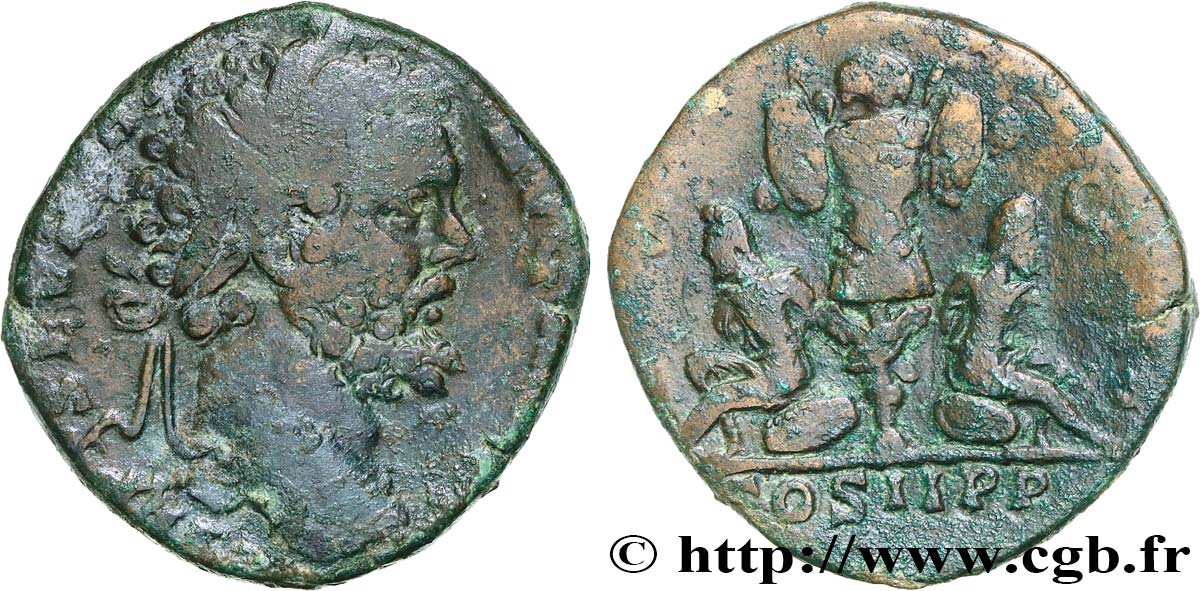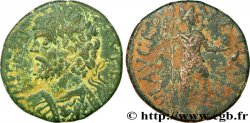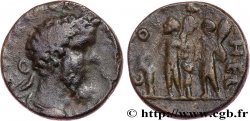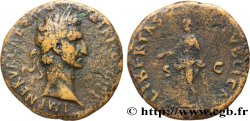brm_622873 - SEPTIMIUS SEVERUS Sesterce
100.00 €(Approx. 116.00$ | 87.00£)
Quantity
Add to your cart

Type : Sesterce
Date: 195
Mint name / Town : Roma
Metal : copper
Diameter : 28 mm
Orientation dies : 7 h.
Weight : 18,45 g.
Rarity : R2
Officine: 1re
Coments on the condition:
Usure importante mais beau revers
Catalogue references :
Obverse
Obverse legend : [L SEPT SEV PERT - AVG IMP V].
Obverse description : Tête laurée de Septime Sévère à droite (O*).
Obverse translation : “Lucius Septimus Severus Pertinax Augustus Imperator quintum”, (Lucius Septime Sévère Pertinax auguste revêtu de la cinquième acclamation impériale).
Reverse
Reverse legend : [PART ARAB PART ADIAB]// COS II P P/ S|C.
Reverse description : Trophée entre deux captifs asiatiques assis dos à dos, chacun sur un bouclier, les mains liées derrière le dos.
Reverse translation : “Parthicus Arabicus Parthicus Adiabenicus Consul iterum Pater Patriæ”, (Vainqueur des Parthes Arabes et des Parthes Adiabènes consul pour la deuxième fois père de la patrie).
Commentary
Poids léger.
Lightweight
Lightweight








 Report a mistake
Report a mistake Print the page
Print the page Share my selection
Share my selection Ask a question
Ask a question Consign / sell
Consign / sell
 Full data
Full data















